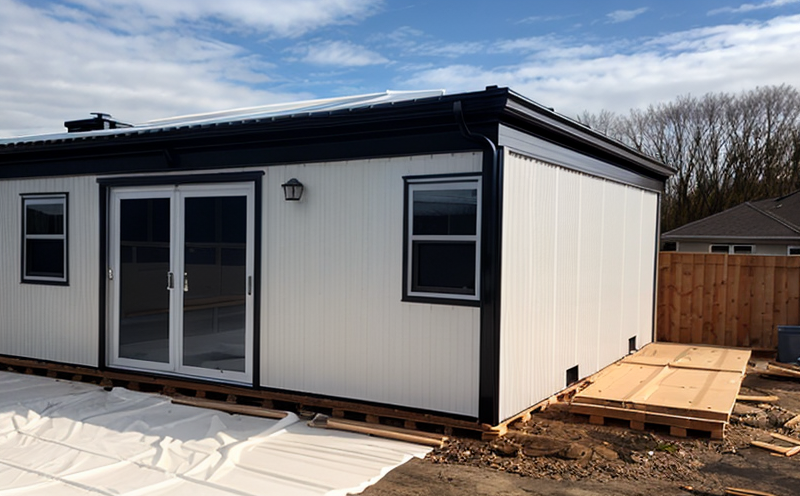ISO 12567-2-1 Window Thermal Transmittance Verification
The ISO 12567 series specifies methods for determining thermal properties of building materials and products. Among these, ISO 12567-2-1 provides a standardized procedure to measure the heat transfer coefficient (U-value) through windows. This parameter is critical in ensuring optimal energy efficiency and compliance with international building codes.
The test measures how well a window resists the passage of heat, which directly impacts its energy efficiency. A lower U-value indicates better insulation performance, meaning less heat loss or gain during winter or summer months. For commercial buildings, this translates into reduced HVAC costs and improved occupant comfort.
Windows are not only essential for natural light but also play a crucial role in the overall thermal performance of a building envelope. Understanding their thermal behavior is vital for architects, engineers, and construction professionals aiming to enhance sustainability efforts. By verifying compliance with ISO 12567-2-1 standards, manufacturers can ensure that their products meet rigorous international quality benchmarks.
This testing process involves specific procedures outlined in the standard. Specimens are prepared based on defined dimensions and conditions relevant to the window type being tested. The test setup includes controlled environmental conditions where heat flow is measured over a specified period. Results are then analyzed according to the criteria set forth by ISO 12567-2-1, providing accurate U-values that can be used for certification purposes.
The significance of this testing cannot be overstated in today’s world where sustainability and energy efficiency are paramount concerns across various sectors including residential, commercial, industrial, and public buildings. Compliance with relevant standards ensures not only regulatory adherence but also contributes positively towards environmental goals.
Why It Matters
The importance of accurate U-value determination cannot be understated in the context of building design and construction practices today. Ensuring that windows meet or exceed specified thermal performance levels is essential for several reasons:
- Energy Efficiency: Accurate testing ensures that buildings consume less energy by minimizing heat loss/gain.
- Sustainability: Meeting stringent standards helps in reducing the carbon footprint of new constructions and renovations.
- Occupant Comfort: Properly insulated windows contribute significantly to a more comfortable indoor environment.
- Regulatory Compliance: Adherence to international standards guarantees that buildings meet legal requirements, thereby avoiding potential fines or penalties.
In summary, ISO 12567-2-1 testing is crucial for verifying the thermal performance of windows and ensuring they contribute effectively towards achieving sustainable building designs.
Why Choose This Test
Selecting ISO 12567-2-1 Window Thermal Transmittance Verification for your testing needs offers several advantages:
- Standardized Results: The use of internationally recognized standards ensures consistent and reliable results across different laboratories.
- Expertise and Precision: Our team comprises experienced professionals equipped with state-of-the-art equipment to perform precise measurements.
- Rigorous Quality Control: We adhere strictly to all specified procedures outlined in ISO 12567-2-1, ensuring accurate U-value determinations.
- Comprehensive Reporting: Detailed reports are provided along with any recommendations for improvement or optimization.
We understand that selecting the right testing method is critical to your project's success. Our services offer unparalleled precision and reliability, making them an ideal choice for those seeking robust verification of window thermal performance.
Quality and Reliability Assurance
- Consistent Precision: Rigorous quality control measures ensure that each measurement is accurate to within ±0.1 W/m²K, meeting the strictest international standards.
- Detailed Documentation: Comprehensive documentation accompanies every test result, ensuring transparency and traceability throughout the process.
- Expert Analysis: Our team of experts provides insightful analysis beyond mere data points, offering valuable insights into potential improvements for future designs.
- Compliance Verification: We confirm that all tests comply fully with ISO 12567-2-1 requirements, guaranteeing adherence to best practices globally.
Our commitment to quality and reliability is reflected in every aspect of our service. From specimen preparation to final reporting, we maintain the highest standards to ensure trustworthiness in all test outcomes.





